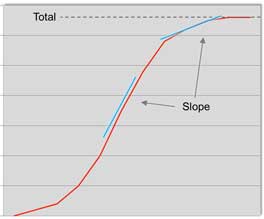70 Project Scheduling Terms That Every Planner Needs To Know
The number of project scheduling and planning terms out there can be overwhelming. Interpreting and communicating a plan can become…
Browse Primavera P6 articles that cover’s various terms and definitions that every planner and scheduler should know.

The number of project scheduling and planning terms out there can be overwhelming. Interpreting and communicating a plan can become…

We all know how versatile Primavera P6 is as a planning, scheduling and project resource management tool. P6 can handle…

XML is a computer language originally developed for the web to be a companion to HTML. Because XML is so…

An S-curve is a graph of the expenditure of project resources over time. Typical S-curves graph either costs or resource…

Primavera P6 supports 2 types of constraints; hard constraints and soft constraints. In Primavera P6, “Mandatory” constraints are hard constraints….